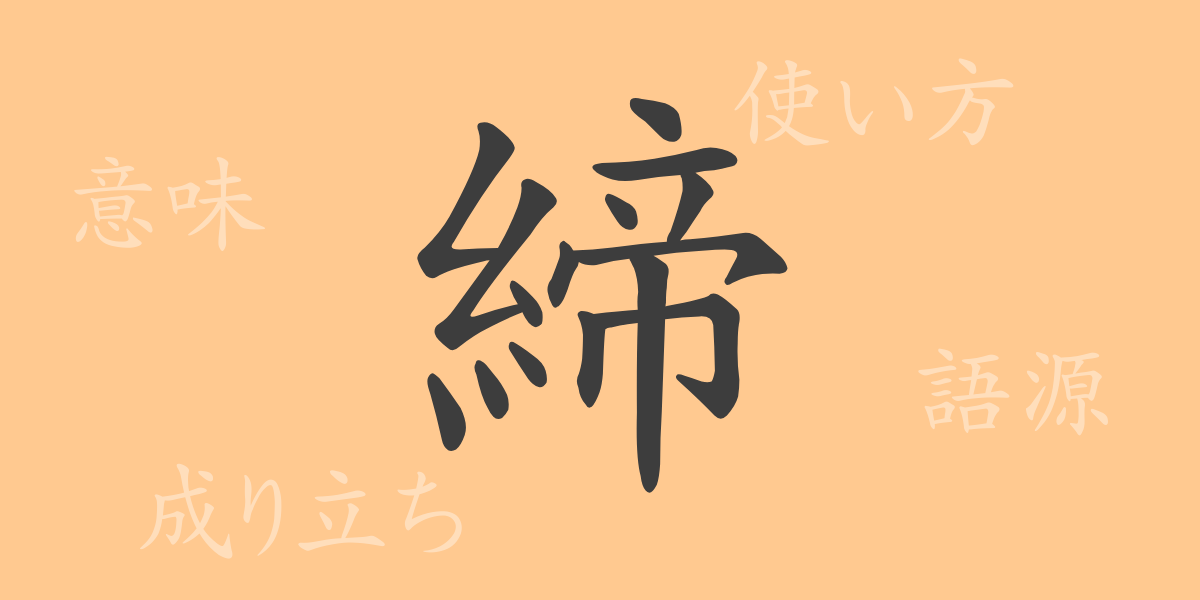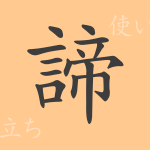The beauty of the Japanese language is significantly shaped by its complex and meaningful kanji characters. This article focuses on the commonly used kanji ‘締(テイ)’, exploring its allure and significance deeply. From deadlines (‘締(し)め切(き)り’) and conclusions (‘締(し)結(けつ)’) to tightening (‘締(し)まる’), we delve into the world of this essential character in our daily communications.
Origins of ‘締(テイ)’
The kanji ‘締’ illustrates the action of tightening a thread, a representation that originated in ancient China with the development of silk fabrics. From the process of intertwining threads to create cloth, the meanings associated with binding and solidifying emerged for ‘締’.
Meaning and Usage of ‘締(テイ)’
‘締’ carries meanings such as ‘to tie’, ‘to fasten’, and ‘to close’. It is used in various contexts such as ‘締(し)結(けつ)’ (to conclude a contract), ‘締(し)め切(き)り’ (deadline), and ‘緊締(きんてい)’ (to tighten a relationship). The words ‘締(し)まる’ (to be tightened) and ‘締(し)める’ (to tighten) also frequently manifest its action-oriented nature.
Readings, Stroke Count, and Radical of ‘締(テイ)’
The kanji ‘締’ is appreciated for its unique readings and structure.
- Readings: The on’yomi (Sino-Japanese reading) is ‘テイ’, and the kun’yomi (native Japanese readings) are ‘しまる’ and ‘しめる’.
- Stroke Count: ‘締’ consists of 15 strokes.
- Radical: The radical is ‘糸(いとへん)’ which relates to ‘thread’ or ‘yarn’.
Phrases and Idioms Using ‘締(テイ)’ and Their Meanings
The kanji ‘締’ plays a pivotal role in various idioms and phrases in Japanese:
- ‘締(し)め切(き)り’ (deadline): Indicates a time limit or deadline.
- ‘締(し)結(けつ)’ (to conclude): Refers to finalizing agreements or contracts.
- Proverb: ‘門前の小僧習わぬ経を読む’ – This proverb, found in environments like ‘締’, suggests that one naturally acquires habits or skills from frequent exposure.
Conclusion on ‘締(テイ)’
The kanji ‘締’, with its fundamental meanings of binding and solidifying, is utilized across a broad spectrum of expressions in Japanese, from formal contracts to everyday actions. Understanding ‘締’ enriches our appreciation of Japanese language nuances, making it indispensable in both contractual contexts and daily usage. Through this exploration, we hope to enhance your understanding and enjoyment of Japanese linguistic expressions centered around ‘締’.

























